
Training feedback survey template
Training feedback survey template SHARE THE ARTICLE ON Table of Contents Training feedback surveys are conducted after authorities conduct a training program. The trainees take

Find the best survey software for you!
(Along with a checklist to compare platforms)
Take a peek at our powerful survey features to design surveys that scale discoveries.
Explore Voxco
Need to map Voxco’s features & offerings? We can help!
Find the best customer experience platform
Uncover customer pain points, analyze feedback and run successful CX programs with the best CX platform for your team.

We’ve been avid users of the Voxco platform now for over 20 years. It gives us the flexibility to routinely enhance our survey toolkit and provides our clients with a more robust dataset and story to tell their clients.
Steve Male
VP Innovation & Strategic Partnerships, The Logit Group
Explore Regional Offices

Find the best survey software for you!
(Along with a checklist to compare platforms)
Take a peek at our powerful survey features to design surveys that scale discoveries.
Explore Voxco
Need to map Voxco’s features & offerings? We can help!
Find the best customer experience platform
Uncover customer pain points, analyze feedback and run successful CX programs with the best CX platform for your team.

We’ve been avid users of the Voxco platform now for over 20 years. It gives us the flexibility to routinely enhance our survey toolkit and provides our clients with a more robust dataset and story to tell their clients.
Steve Male
VP Innovation & Strategic Partnerships, The Logit Group
Explore Regional Offices

Find the best survey software for you!
(Along with a checklist to compare platforms)
Take a peek at our powerful survey features to design surveys that scale discoveries.
Explore Voxco
Need to map Voxco’s features & offerings? We can help!
Find the best customer experience platform
Uncover customer pain points, analyze feedback and run successful CX programs with the best CX platform for your team.

We’ve been avid users of the Voxco platform now for over 20 years. It gives us the flexibility to routinely enhance our survey toolkit and provides our clients with a more robust dataset and story to tell their clients.
Steve Male
VP Innovation & Strategic Partnerships, The Logit Group
Explore Regional Offices
SHARE THE ARTICLE ON
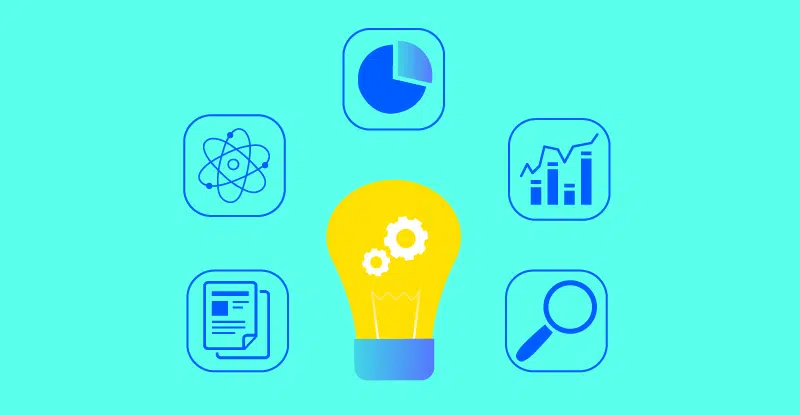
Big data is being leveraged increasingly in the business world to improve operations, enhance customer experience, and create targeted marketing campaigns that ultimately contribute to increasing sales and profits.
As the value and importance of big data continue to rise in the business world, the need for privacy appears to be increasing at the same rate. Marketers seem to have found themselves in a perplexing conundrum; How can we gather data regarding users’ opinions, behaviours, and sentiments without compromising on their need for privacy?
In this blog, we’ll explore how you can leverage research technology to gather data ethically in market research.
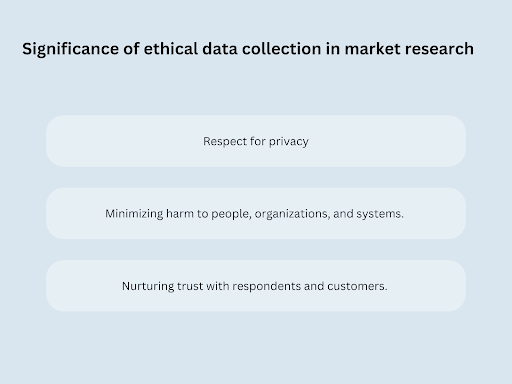
From the standpoint of a business, data is the greatest asset that can help build the next best innovation to improve the lives of people. However, it is also important that the organizations protect and use data ethically.
We are living in an online world where the line between private and public lives is becoming blurred. While there are legal protections like GDPR, there are also gray areas that make it difficult to safeguard all our data.
In market research, data is the lifeblood of making informed decisions and solving complex problems. With ethical concerns in question, researchers must ensure that their studies not only comply with regulations but also adhere to ethical principles and uphold moral responsibilities. As a result, they have turned to Research Technology to gather data ethically and minimize harm to people, organizations, and systems.
Ethical data collection is significant because:
Also read: ResTech: The Booming Research Method –
For quite a few years now, cookies have been used to track website visitors and gather data that facilitates targeted ads and improved UX (user experience). Internet cookies, known as HTTP cookies, are small files that a website stores on your device so that the site can monitor you and gather certain information about you.
Now, web browsers have started giving users the option to restrict cookies so as to protect their privacy. This is mainly due to the fact that a lot of users feel like internet cookies are invasive, raising a myriad of privacy concerns. Marketers must, therefore, adapt to a new environment that is independent of cookies while still enabling the collection of knowledge-driven data.
This is where ResTech, or research technology, comes in. ResTech refers to a field of research that is conducted with the objective of creating and delivering enhanced technologies that support, enable, and enhance the entire research lifecycle. ResTech is designed around the concept of ethically sourced data, and therefore, it relies on consent-based insights.
These are a few market research tools that have been introduced through research technology as a solution to gather data without cookie tracking:
Online surveys such as email, web-based, social media, or SMS surveys have become the common tool for ethical data collection. This research technology helps to gather data ethically as it enables you to engage with the intended audience directly.
Online survey tools allow you to reach your audience and gather structured data from a large number of participants in real time. The modern tools not only comply with regulatory standards but also enable you to gather informed consent from participants.
Conducting telephone or face-to-face interviews is a type of primary data collection. The method offers the advantage of real-time interaction. However, with recorded conversations, it is important to be mindful of privacy and consent.
Sensor technology, such as wearable devices, provides a continuous stream of data in fields like health monitoring. The tools ensure compliance with ethical concerns like anonymized data when securing sensitive information.
Curious About The Price? Click Below To Get A Personalized Quote.
There are many data privacy and security regulations followed by big and small businesses to reduce misuse of data and keep it safe. Regardless, there are some ethical principles that an organization must follow to translate an individual’s right to privacy into the digital world.
You must ensure clear communication with the respondents about the purpose of your market research, what data you want to gather, where you will store it, and who you will share it with.
Participants must understand how you will use their data and for what purpose.
Research technology complies with data regulations to ensure your research complies with relevant protection laws and regulations.
In order to use research technology to gather data ethically, you must also ensure that the audience fully understand the reason, risks, and benefits of the research before they agree to participate.
You need to offer participants the choice to opt into or opt out of the research. Respondents should also be aware of how you are going to use the data and how you will securely store it.
When you are seeking data from your audience, it is your responsibility to keep the collected data secure and safe from any malpractice. From data leaks to sales, you must accept accountability for the damage.
Research technology tackles it by offering tools that with security features like 2FA or authorized access to data.
See how Voxco can enhance your research efficiency.
Like every other aspect of business, the requirements regarding data privacy are continually evolving. Businesses must adapt by providing users with the privacy they covet without compromising on the quality of the data they gather. Research technology provides businesses with alternatives to achieve this vision while acting in users’ best interests.
Organizations have the power to inspire and stimulate the use of ethically sourced data by investing in the right players in the data industry. With power comes responsibility; businesses should leverage ResTech to identify and employ the right measures that enable the collection of data-driven knowledge in an ethical and privacy-conscious way.

Training feedback survey template SHARE THE ARTICLE ON Table of Contents Training feedback surveys are conducted after authorities conduct a training program. The trainees take
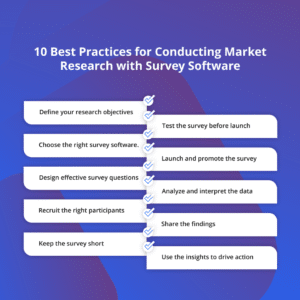
Website Feedback Surveys: A Complete Guide SHARE THE ARTICLE ON Table of Contents In this digital age, websites serve as the face of a business.
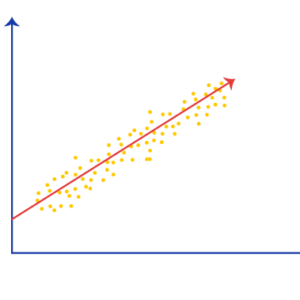
Regression Definition SHARE THE ARTICLE ON Table of Contents What is Regression? Regression is a statistical tool that is leveraged in many different disciplines to

Ways to measure brand equity Improve Brand Experience With Voxco Use our in-depth online Brand Awareness guide to Improve Your Brand Awareness Download Now SHARE
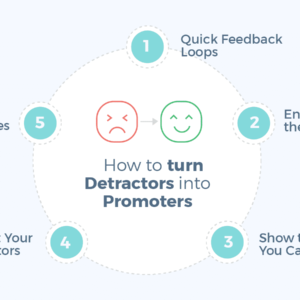
All you need to know about Customer Experience Management Free Download: Enhance NPS® Scores using our NPS® Survey Templates Download Now SHARE THE ARTICLE ON

How to leverage business intelligence to detect and prevent fraud SHARE THE ARTICLE ON Table of Contents Introduction Fraud is a significant risk for businesses
We use cookies in our website to give you the best browsing experience and to tailor advertising. By continuing to use our website, you give us consent to the use of cookies. Read More
| Name | Domain | Purpose | Expiry | Type |
|---|---|---|---|---|
| hubspotutk | www.voxco.com | HubSpot functional cookie. | 1 year | HTTP |
| lhc_dir_locale | amplifyreach.com | --- | 52 years | --- |
| lhc_dirclass | amplifyreach.com | --- | 52 years | --- |
| Name | Domain | Purpose | Expiry | Type |
|---|---|---|---|---|
| _fbp | www.voxco.com | Facebook Pixel advertising first-party cookie | 3 months | HTTP |
| __hstc | www.voxco.com | Hubspot marketing platform cookie. | 1 year | HTTP |
| __hssrc | www.voxco.com | Hubspot marketing platform cookie. | 52 years | HTTP |
| __hssc | www.voxco.com | Hubspot marketing platform cookie. | Session | HTTP |
| Name | Domain | Purpose | Expiry | Type |
|---|---|---|---|---|
| _gid | www.voxco.com | Google Universal Analytics short-time unique user tracking identifier. | 1 days | HTTP |
| MUID | bing.com | Microsoft User Identifier tracking cookie used by Bing Ads. | 1 year | HTTP |
| MR | bat.bing.com | Microsoft User Identifier tracking cookie used by Bing Ads. | 7 days | HTTP |
| IDE | doubleclick.net | Google advertising cookie used for user tracking and ad targeting purposes. | 2 years | HTTP |
| _vwo_uuid_v2 | www.voxco.com | Generic Visual Website Optimizer (VWO) user tracking cookie. | 1 year | HTTP |
| _vis_opt_s | www.voxco.com | Generic Visual Website Optimizer (VWO) user tracking cookie that detects if the user is new or returning to a particular campaign. | 3 months | HTTP |
| _vis_opt_test_cookie | www.voxco.com | A session (temporary) cookie used by Generic Visual Website Optimizer (VWO) to detect if the cookies are enabled on the browser of the user or not. | 52 years | HTTP |
| _ga | www.voxco.com | Google Universal Analytics long-time unique user tracking identifier. | 2 years | HTTP |
| _uetsid | www.voxco.com | Microsoft Bing Ads Universal Event Tracking (UET) tracking cookie. | 1 days | HTTP |
| vuid | vimeo.com | Vimeo tracking cookie | 2 years | HTTP |
| Name | Domain | Purpose | Expiry | Type |
|---|---|---|---|---|
| __cf_bm | hubspot.com | Generic CloudFlare functional cookie. | Session | HTTP |
| Name | Domain | Purpose | Expiry | Type |
|---|---|---|---|---|
| _gcl_au | www.voxco.com | --- | 3 months | --- |
| _gat_gtag_UA_3262734_1 | www.voxco.com | --- | Session | --- |
| _clck | www.voxco.com | --- | 1 year | --- |
| _ga_HNFQQ528PZ | www.voxco.com | --- | 2 years | --- |
| _clsk | www.voxco.com | --- | 1 days | --- |
| visitor_id18452 | pardot.com | --- | 10 years | --- |
| visitor_id18452-hash | pardot.com | --- | 10 years | --- |
| lpv18452 | pi.pardot.com | --- | Session | --- |
| lhc_per | www.voxco.com | --- | 6 months | --- |
| _uetvid | www.voxco.com | --- | 1 year | --- |